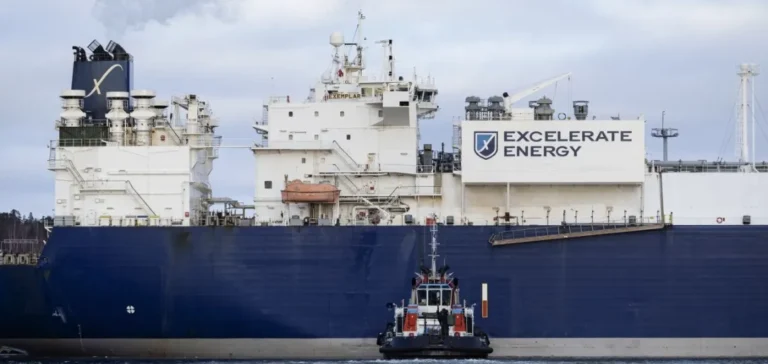U.S.-based Excelerate Energy has finalised a commercial agreement with a subsidiary of Iraq’s Ministry of Electricity to construct the country’s first floating liquefied natural gas (LNG) import terminal. The fully integrated project will be located at the Port of Khor Al Zubair and includes both terminal development and LNG supply by Excelerate.
A dual-purpose strategic agreement
The contract covers an initial five-year term with extension options, combining regasification services and direct LNG supply. The agreement guarantees a minimum offtake of 250 million standard cubic feet per day (MMscf/d), with a design capacity of 500 MMscf/d. Excelerate will deploy its newest floating storage and regasification unit (FSRU), Hull 3407, and deliver all topside equipment and berth modifications required for operation.
The total investment, including the cost of the FSRU, is expected to reach approximately $450 mn. Excelerate will serve as both the infrastructure developer and LNG supplier under the same commercial framework.
Hull 3407, a high-capacity vessel
Hull 3407, currently under construction by HD Hyundai Heavy Industries in South Korea, is scheduled for delivery in 2026. It has a storage capacity of 170,000 cubic metres and a regasification throughput of up to 1 billion standard cubic feet per day. The unit also features advanced boil-off gas management systems for improved operational efficiency.
According to Excelerate, the project marks its first fully integrated LNG terminal development in the Middle East. It addresses growing regional demand for regasification infrastructure and extends the company’s commercial platform into a new strategic market.
Meeting Iraq’s growing energy needs
The terminal is expected to begin commercial operations in 2026, pending final permits and construction milestones. It will enable Iraq to access global LNG markets for the first time, reducing its reliance on pipeline gas imports and supporting rising domestic electricity demand.
The project was developed in close cooperation with the Iraqi government and received public backing from both Iraqi and U.S. officials during the agreement’s signing ceremony.






















